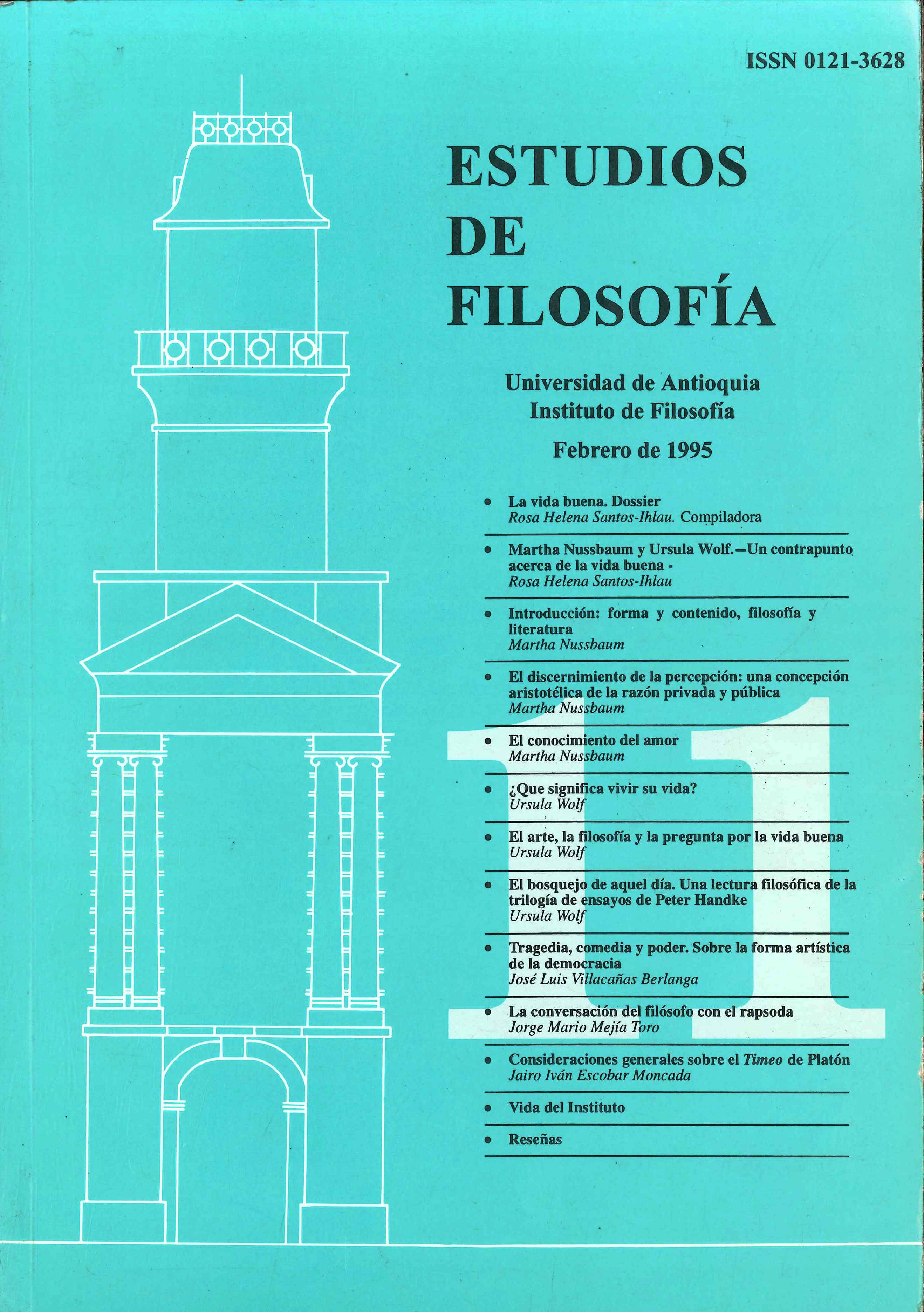Introduction: form and content, philosophy and literature
DOI:
https://doi.org/10.17533/udea.ef.338797Keywords:
Vision of life, philosophy and literature, form and contentAbstract
Both philosophy and literature in as much as they represent a search for truth, for answers to a whole range of vital questions each turn to a formal structure which of necessity is the expression of an attitude to life. Literary form cannot be separated from philosophical content, since it is the result of an enquiry which strives to provide answers to certain matters of human existence. In much the same way, its philosophical content is grafted in its expression into a formal structure which transmits a meaning of life. Form and content may not be split up without fracturing the vision of life that both literary and philosophical texts afford. Nevertheless, certain questions beg the asking: How to write? What forms, structures and language are we to use to speak of such particular issues as love? To what extent may we write philosophically upon life and its own special questions? What contributions has literature made in the search of alternative visions on human experience? This is the point of departure for this essay which aims to grant literature and its means of expression a more central role in the field of reflection on the meaning of life and other important questions on human concerns.
Downloads
Downloads
Published
How to Cite
Issue
Section
Categories
License
Copyright (c) 1995 Martha Nussbaum; Erna von der Walde

This work is licensed under a Creative Commons Attribution-NonCommercial-ShareAlike 4.0 International License.
Authors who publish with this journal agree to the following terms:
1. The Author retains copyright in the Work, where the term "Work" shall include all digital objects that may result in subsequent electronic publication or distribution.
2. Upon acceptance of the Work, the author shall grant to the Publisher the right of first publication of the Work.
3. The Author shall grant to the Publisher a nonexclusive perpetual right and license to publish, archive, and make accessible the Work in whole or in part in all forms of media now or hereafter known under a Creative Commons Attribution-NoCommercia-ShareAlike (CC BY-NC-SA 4.0), or its equivalent, which, for the avoidance of doubt, allows others to copy, distribute, and transmit the Work under the following conditions: (a) Attribution: Other users must attribute the Work in the manner specified by the author as indicated on the journal Web site;(b) Noncommercial: Other users (including Publisher) may not use this Work for commercial purposes;
4. The Author is able to enter into separate, additional contractual arrangements for the nonexclusive distribution of the journal's published version of the Work (e.g., post it to an institutional repository or publish it in a book), as long as there is provided in the document an acknowledgement of its initial publication in this journal;
5. Authors are permitted, and Estudios de Filosofía promotes, to post online the preprint manuscript of the Work in institutional repositories or on their Websites prior to and during the submission process, as it can lead to productive exchanges, as well as earlier and greater citation of published work (see The Effect of Open Access). Any such posting made before acceptance and publication of the Work is expected be updated upon publication to include a reference to the Estudios de Filosofía's assigned URL to the Article and its final published version in Estudios de Filosofía.















